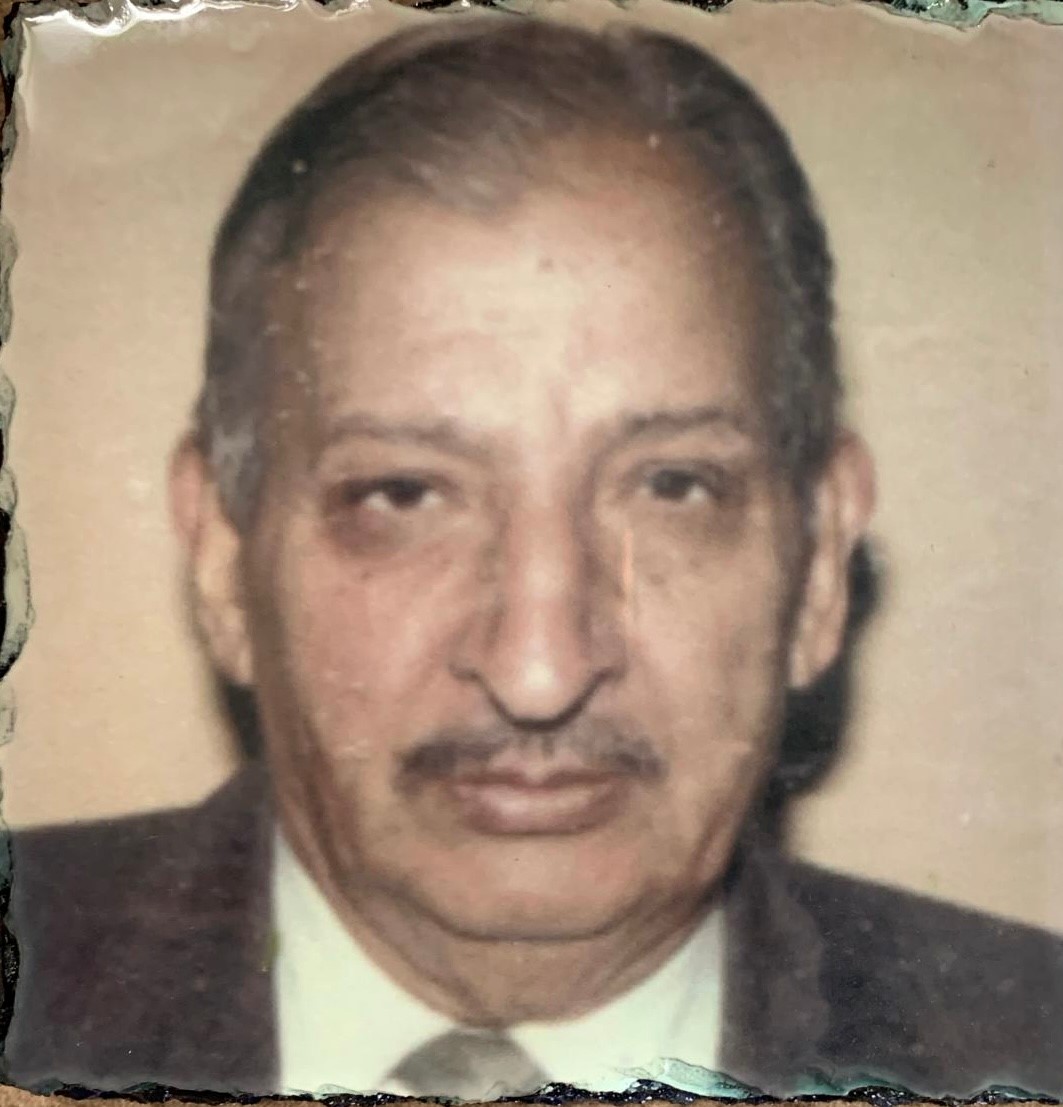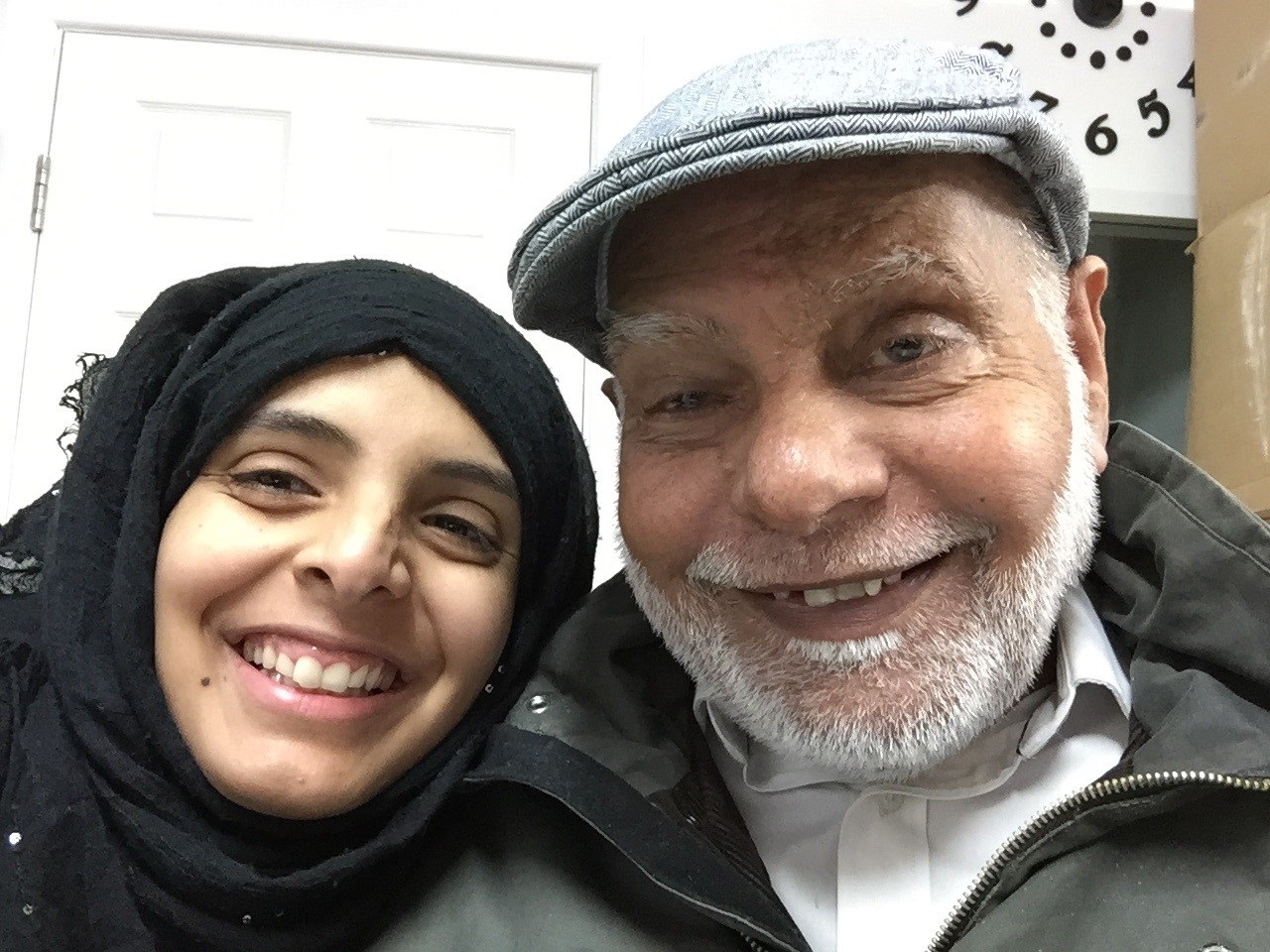
Real stories
I’m using my own experience to help other South Asian families access support for dementia
Both of Sania Rehman’s grandfathers had dementia, but their experiences were very different. After a career in IT, she has now become a Local Services Manager for Team Sahara (meaning ‘support’ in Urdu) who assist South Asian families to access culturally appropriate help.
Sania's experience of dementia
My Dada Abu (paternal grandfather) lived with us when we were growing up. He was a well-groomed man. I will always remember his pinstriped suit.
When I was a child, my Dada Abu suffered a stroke which left him with some long-term problems. After a lot of rehab, he was able to walk again with the aid of a walking stick. He started to forget things and his behaviour changed. He was an outgoing, active and kind man but became withdrawn and reclusive.
For over a decade we thought it was a natural part of his ageing.
We supported and cared for him the best way we could. That is how it is in South Asian families; we look after each other. At a young age I became one of his primary carers.
After the dementia diagnosis
One day, things changed, there was an incident and we quickly realised that this was more than an age issue. He was then diagnosed with vascular dementia. We were supported at the time by a social worker who didn't understand our culture values and our family structure. Our family was struggling and her way to support us was to have him sectioned.
Moving into a care home with dementia
After six months he was eventually released into a care home in Stockport. I was 21, I’d just graduated and was getting married. I moved and worked in Stockport so luckily, I was able to visit him daily. At lunchtime I would visit him, and we would have our lunch together. He would eat his lunch and then try to get his hands on my sandwiches.
We would laugh together; it was the best part of the day for me. I made the most of the time I had with him.
A lack of dementia support
After a fall in June 2010, he was in a coma for six weeks. We wanted him to return home to my parent’s house where we could look after him. Initially he was released back to the care home while we tried to sort things out at home like his bed and some carers.
We had no support with this at all. Our social worker just ignored our calls and would speak to us with no real guidance or depth. We just felt lost but were desperate to bring him home.
In October 2010, a few weeks before he was due to return home, he passed away in his bed at the care home.

It's been nearly 14 years since he died, but I still get upset because he was my special person. He was the person who taught me my first prayer from the Quran, he bought me my first bike and he was my walking buddy. He taught me to stand up for myself and I am who I am today because of him.
A different dementia diagnosis experience
On the other hand, my Nana Abu (maternal grandfather) was a hard-working businessman, a devout Muslim and a proud family man. He was active in the community as much as he was at home.
It all started when he forgot his way home and was repeating tasks, getting muddled up when he was talking or losing his words.
He was very quickly diagnosed with Alzheimer’s disease. Interventions were put in place in the early stages of his dementia journey.

Supportive dementia carers
He had carers that supported him with his activities of daily living, and he maintained his independence for a long time. He was the core part of the family, present at all birthdays, anniversaries, weddings and family holidays. His condition got worse over time, but he maintained a good quality of life. He was the life of the party. His family was the core piece of his heart.
He was put on the end of life pathway at the beginning of October 2023. A week later he passed away in his own bed with his five children, 15 grandchildren and six great-grandchildren around him.
Having experienced a dementia journey where one grandfather and our family had no support to my other grandfather who lived well with dementia, I was determined to change from the former to the latter. After a break from my career in IT I saw the opportunity to join the Alzheimer’s Society as a Dementia Adviser for Team Sahara (South Asian Dementia Support Service).
Our service is like a family, it’s got a heart and a soul, and we work on keeping it alive each day by going out and educating the community and building awareness. When I meet carers, I see myself, my mum and my brother in their eyes.
The anxiety, exhaustion, and fear of losing someone they love, is why the work we do is so important.
Many South Asian cultures are very similar, so we can give more comfort as we understand the family dynamic and values. We’re not just doing one home visit and completing some paperwork. We will call again and again whenever the family needs us.
Accessing dementia services
There are services available but people in our community often don’t access them because of language and communication barriers, accessibility and because they are not culturally appropriate.
Through Sahara we are making sure there are South Asian groups and services for people across Greater Manchester and trying to make existing ones more culturally appropriate and language friendly. We see the vital impact it has on our community.
A core part of what we are doing is educating our community and building and spreading awareness of dementia.
We hope this will help our community to start talking about dementia and seeking an early diagnosis and accessing the services and support that is available.
I have seen first hand that a person can live well with dementia. We want this for everyone.
Our Dementia Directory
Use our dementia directory to find local support services for people with dementia and their carers in England, Wales and Northern Ireland.





Maggie Murdoch
says